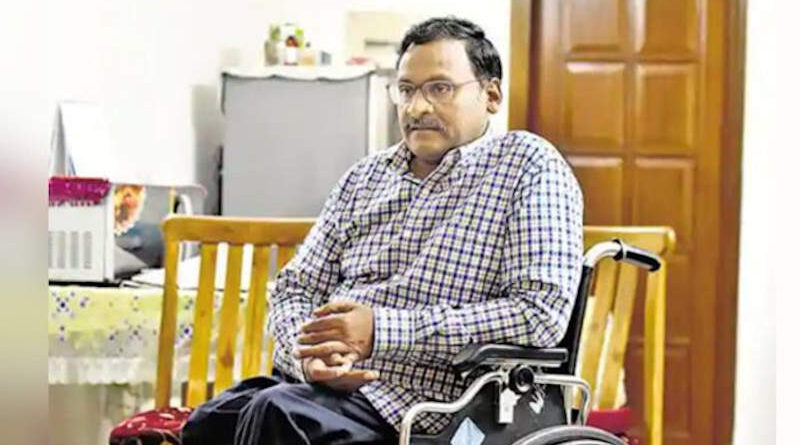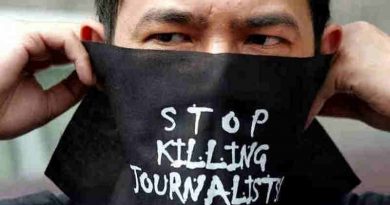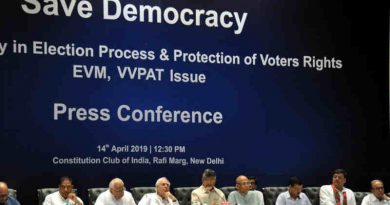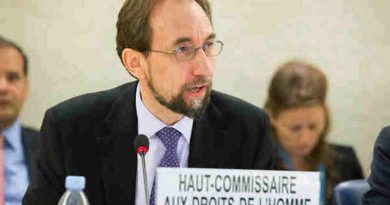Indian Regime Ignores UN Experts’ Appeal for the Release of Professor Saibaba
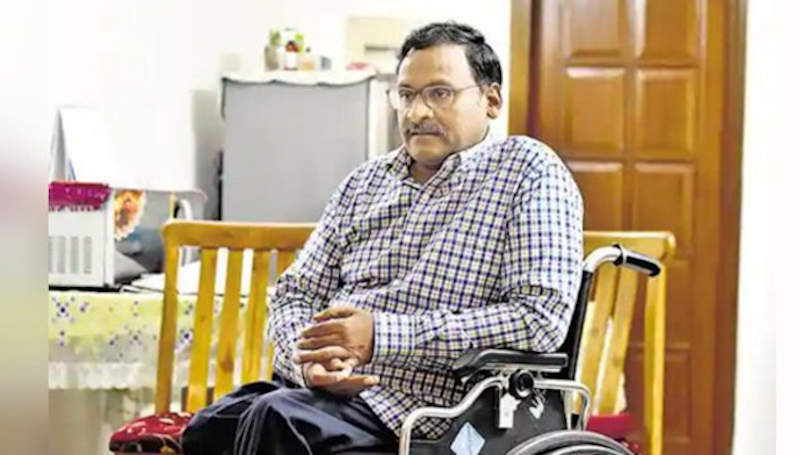
Indian Regime Ignores UN Experts’ Appeal for the Release of Professor Saibaba
Dr. G.N. Saibaba is a former Delhi University English professor and human rights defender. He has suffered from a spinal disorder and polio since the age of five and uses a wheelchair.
The UN Special Rapporteur on Human Rights Defenders and another UN expert complain that the Government of India has ignored their appeal to get GN Saibaba released from arbitrary imprisonment.
After 60 days of keeping their communication with the Indian regime confidential, the UN officers said on October 20 that their appeal fell on deaf ears and Saibaba continues to be in jail.
Since the sending of the communication, according to the UN officers, GN Saibaba remains in prison with no change in his detention conditions. A judgement on his case is expected at the Nagpur Bench of the Bombay High Court, but its exact date has not been communicated to the human rights defender’s lawyers.
Dr. G.N. Saibaba is a former Delhi University English professor and human rights defender. He has suffered from a spinal disorder and polio since the age of five and uses a wheelchair.
He has been a leading voice defending the rights of Adivasis, Dalits and religious minorities in India, and led the launching of nationwide opposition to the corporate pillage of Adivasi water, forest and land resources by mining and industrial corporations.
He was arrested in May 2014 and sentenced in March 2017 to life imprisonment for multiple offences under the draconian Indian law Unlawful Activities Prevention Act (UAPA).
According to the UN experts, Dr. Saibaba has been detained for over nine years in Central Jail in Maharashtra. His health has continued to deteriorate in detention, with the human rights defender currently suffering from a brain cyst, a lump in his abdomen, breathing difficulties and a heart condition, cumulatively requiring specialized care only available in New Delhi.
He remains detained in an egg-shaped ‘Anda Cell’ incompatible with his status as a wheelchair user and is granted only a few hours in the common barracks of the prison per day.
Now public: I wrote to the Government of #India expressing my serious concern about the detention & state of health of #HRD G.N. Saibaba. Unfortunately, there has been no response from the State. @IndiaUNGeneva @OfficialSauravD
Read the full letter:https://t.co/14jfIKNbZL
— Mary Lawlor UN Special Rapporteur HRDs (@MaryLawlorhrds) October 20, 2023
On 14 October 2022, the Bombay High Court discharged the case against Dr. Saibaba and ordered his release alongside that of the co-accused in the case against him, ruling that the procedural requirements included in the UAPA had not been adhered to during the process against them.
On the same day, the Maharashtra Government applied to the Supreme Court for a stay on the releases. The Supreme Court subsequently held a special sitting on 15 October 2022 and suspended the order of the High Court. The Supreme Court also rejected a request for the transfer of Dr. Saibaba from prison to house arrest on medical grounds.
On 19 April 2023, the Supreme Court overturned the decision of the Bombay High Court and ordered a new bench to be constituted at the lower court to consider the merits of the case afresh, with a decision recommended within four months.
In their communication, the UN experts expressed their serious concern at the continuing detention of Dr. Saibaba. “We reiterate the grave concern, expressed in previous communications addressed to the Indian Government on the case, as to the inadequacy of the detention facilities at the Nagpur Central Jail,” the UN experts said.
They also questioned the necessity of the enhanced security measures put in place, including Saibaba’s detention in a so-called ‘Anda Cell’, in light of his significantly limited mobility.
The communications with the Indian government are being led by the UN officers, Mary Lawlor, Special Rapporteur on the situation of human rights defenders, and Gerard Quinn, Special Rapporteur on the rights of persons with disabilities.
Dr. G.N. Saibaba. Photo courtesy: UN Special Rapporteur on Human Rights Defenders


